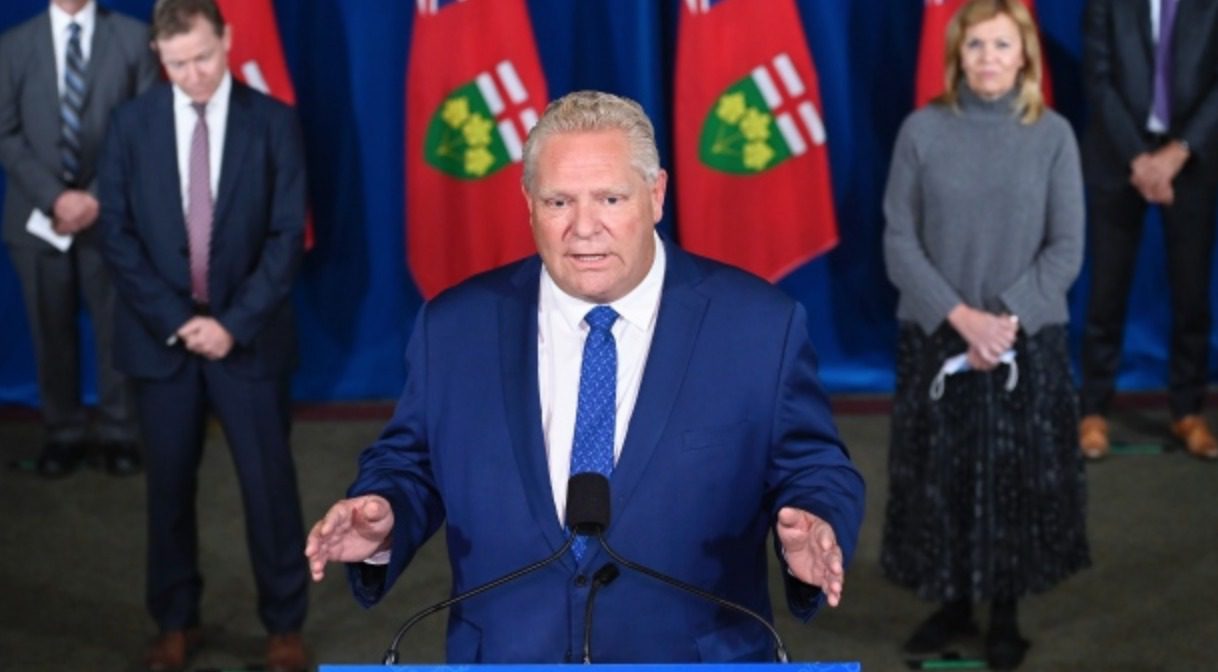Something that plenty of Canadians and apparently Ontario's AG and most especially members of the media appear to have difficulty grasping is that advisors advise and ministers decide. This isn't unique to the current pandemic situation it's a long-standing issue, such as when the federal government commissioned an expert panel to present options, and the media kept demanding to know what options the panel recommended, and they couldn't get their heads around the panel saying that they weren't making recommendations, but presenting options, which was their role because ministers decide. The moment the panel presenting the options says that they prefer one over the other then they become cover for that government. And we know that governments love nothing more than to launder their accountability in any way they possibly can, be it through expert advice or votes in the Commons that spread the culpability around.
Responsible Government is premised on the notion that the government is to be held to account by the legislature for their decisions and their conduct. The civil service gets to give them "fearless advice," and the government gets to be politically accountable for the decisions that arise from that advice they also get to take the praise, but also the blame. That way, Parliament can hold them to account by granting or withdrawing confidence, and voters can decide whether to keep them in office for another parliament, or boot them and let someone else take charge for a while. That's also one of the reasons why the advice that governments are being given tends to be behind closed doors so that it can both be fearless because they don't have to worry about it showing up in the news with their names on it, but also to focus the accountability on the Cabinet because they are making the decision, and not the civil service or their advisors, like the CMOHs.
But herein becomes part of the problem of our current situation while people want these CMOHs to have a more active hand in making the decisions around how to combat the pandemic, we are seeing a number of governments who are content to ignore that advice and then hide behind the CMOH and say that they are taking their advice, or at the very least taking that advice into consideration. Much of the time, these premiers are lying about the advice that they received, and pretending that the decisions that they are taking is based on the advice that they didn't actually receive or take, and giving people the impression that the CMOH is the problem.
This puts those CMOHs into a difficult position they are advisors, not decision-makers, and they don't have to face the electoral consequences of their decision-making, but at the same time, they don't have the ability to publicly disclose the extent of what that advice was. This means that when the government makes their decisions, the CMOHs have to stick to the lines and try to do the best they can to mitigate it as best they can, often doing their best behind the scenes to change the minds of those premiers and ministers. If they did disclose that advice or spoke out against the premiers, they would soon find themselves out of a job, and even more difficult is whether or not they feel that they have been so misrepresented by the government that they feel duty-bound to resign on principle an even more difficult choice when there is a pandemic, and they have the knowledge that comes with being at the centre of things since the beginning, and that their departure could cost lives because of the time needed to find a replacement and get that replacement up to speed on the file.
Nevertheless, one imagines that if we weren't in a pandemic that some of these CMOHs would have resigned in protest by now given how their advice has been mischaracterized by certain premiers and we know that because of this AG report, and the leaks that have come out (which will cause longer-term damage to how governments operate, but that's a discussion for another column). When the Harper government lied about the Chief Statistician giving the okay to their plans to eliminate the mandatory long-form census, he resigned on a point of principle because they had used him as a shield for their irresponsible plans. But the current CMOHs may feel like they have less latitude to resign on similar points of principle right now, which only emboldens these premiers to keep lying and hiding behind the supposed advice they're being given.
But this brings us back to the notion about accountability. As much as we want to know what the closed-door advice has been, it should largely be irrelevant in the grand consideration because the government is ultimately culpable for the decisions that were made, regardless of what the advice was. It's also why we should resist the impulse for technocratic decision-making by those CMOHs, because we can't hold them to account for those decisions if we empower them to overrule their political masters. If we think that these premiers' policies are going to lead to people's deaths and rest assured, they are in some provinces then we should be focusing on pressuring those premiers to change course, and not on trying to divine what kind of advice they're receiving.
Photo Credit: CBC News








